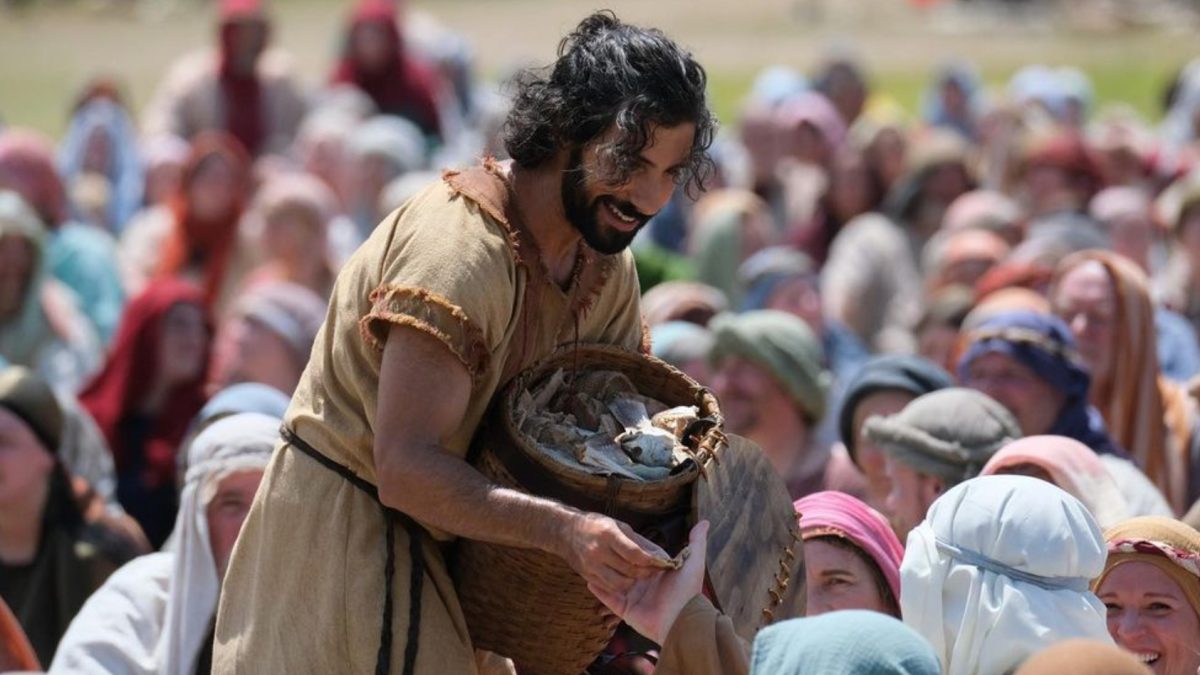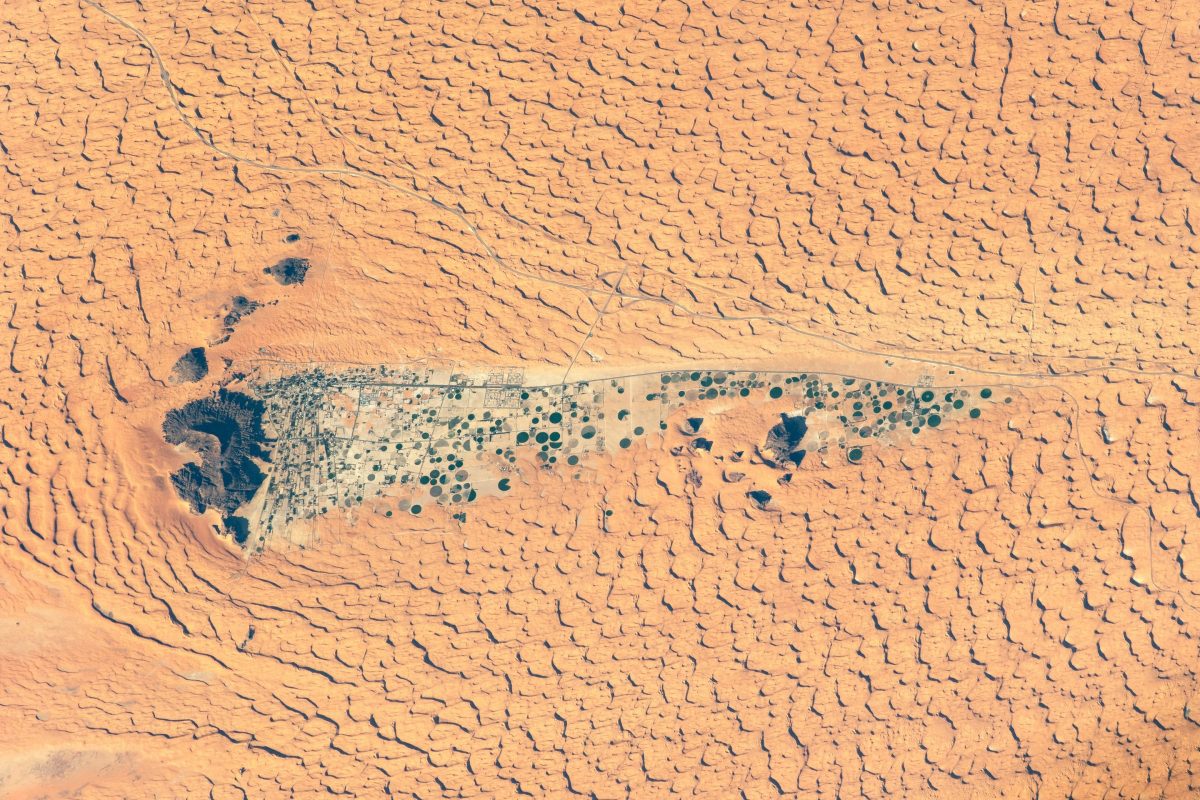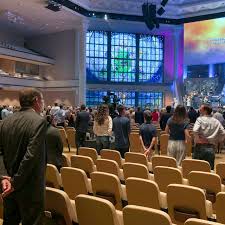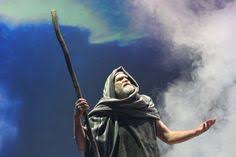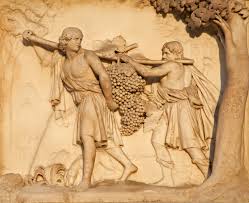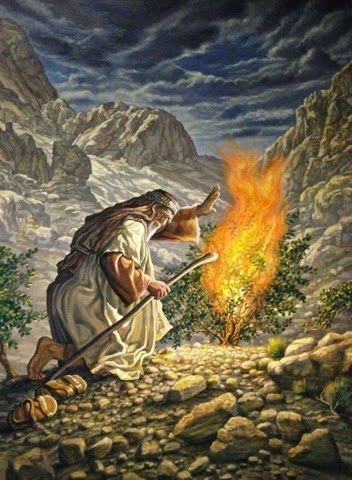Background Passages: Mark 6:30-52 and Ephesians 1:15-19a
You’ll remember the story.
The disciples just returned to Bethsaida on the shore of the Sea of Galilee after a quick mission trip of their own where they taught and preached the gospel. As they began sharing how God had been at work in their efforts, the bustle of the crowd grew distracting.
Jesus suggested a quick boat ride to the far shore where they could spend a quieter time in reflection, rest and praise.
Their leaving the town did not go unnoticed, however. As their boats rowed across the water, the crowd followed, walking along the shoreline trying to catch up to the teacher and healer. By the time Jesus and his disciples reached the beach, a large crowd had already gathered, hoping to hear the words of the master teacher.
Jesus felt compassion toward them, according to scripture, and began to teach them “many things” about God and what it means to live as his people. As the late afternoon came, one of the disciples interrupted Jesus and suggested he call it a day.
I’m paraphrasing, but they said, “We’re in a remote place and it’s late. These folks are going to be hungry. We need to send them on their way so they can find something to eat.”
Jesus suggested that rather than send them away, the disciples should feed them. The idea struck them as impossible. The crowd was too large and their funds too small. Jesus asked them what they had which they could share. Andrew, bless his heart, found a young boy with a pouch holding five small loaves of bread and two small fish that his mother had prepared for his lunch that morning. “That’s it, Jesus.” He probably said. “That’s all we could find.”
Sometime later, the disciples stared for a long moment at the 12 baskets of loaves and fishes gathered after Jesus took the boy’s meager meal, blessed it and began giving food to the disciples to distribute to the crowd of 5,000 men and their families.
Can you imagine how stunning it must have been to see the unfolding of this miracle?
After taking care of the hungry, Jesus insisted that the disciples get in the boat to return to Bethsaida. They pushed off from shore, yammering in excitement about what they had just witnessed. After dismissing the crowd, telling them to return home, Jesus found a quiet place on the mountainside to rest and pray, giving thanks to God for the blessings that unfolded that day.
The winds picked up during the early morning hours and the moon glistened off the water below. In the distance, Jesus could see the disciples struggling to make headway against the wind and waves. Scripture tells us they were “straining at the oars.”
Mark picks up the story from there.
Shortly before dawn he (Jesus) went out to them, walking on the lake. He was about to pass by them, but when they saw him walking on the lake, they thought he was a ghost. They cried out, because they all saw him and were terrified.
Immediately he spoke to them and said, “Take courage! It is I. Don’t be afraid.” Then, he climbed into the boat with them, and the wind died down. They were completely amazed, for they had not understood about the loaves; their hearts were hardened.
I went a long way through scripture to get to that last line that I’ve overlooked every time I’ve read this story. “Their hearts were hardened.”
That’s a phrase I most often associate with Pharoah. Moses, on God’s behalf, appealed to Pharoah time and time again to let the people of Israel return to their homeland. Each time the Egyptian king refused, God sent a plague of blood or frogs (that would have done it for me), or gnats, or flies to prove his power and persuade the reluctant ruler.
Each time, however, scripture in Exodus tells us that Pharoah “hardened his heart.” Then, when God had given him every chance in the world to respond positively to him, God took his choice away. God, then “hardened the heart of Pharoah,” sealing his fate.
When we see that term in scripture, it usually means a stubborn refusal to obey God’s teaching or to acknowledge him as Lord. In the Old Testament, it suggests such self-centeredness that one simply turns his back repeatedly on God. Refusing to listen. Refusing to obey.
In the New Testament and even today, to harden one’s heart is to stubbornly and consistently reject Jesus as Savior and Lord, despite every effort the Holy Spirit makes to open one’s heart to the possibility of salvation through Christ. That’s true, the story I just shared suggests there is more to it than that.
In our passage in Mark, we see the disciples sitting in a boat in the middle of the Sea of Galilee with hardened hearts after Jesus demonstrated his power and authority over all things, not once, but twice in the space of 12 hours. His disciples. His followers. People who believe in him.
Once Jesus climbed into the boat, Mark tells us the disciples were “completely amazed.” Whatever Greek word is used in this instance, is evidently not easily translated into English. Different versions of the Bible capture the phrase as “completely overwhelmed,” “completely astounded,” “so baffled they were beside themselves,’ “completely confused,” or “utterly astounded.”
The reason for their profound astonishment was not that Jesus walked on water and calmed the sea. Look what Mark said, “…they had not understood about the loaves.”
Talk about a left turn. I didn’t see that coming. What did they not understand about the loaves?
The disciples were believers. They trusted Jesus as Lord, but they still had much to learn about who he was and what it means to live for him. Such a description sounds eerily familiar to my life…and I suspect to yours.
Though they had come a long way in their understanding, they often missed the point of what Jesus did and why he did it. Jesus did an incredible miracle by creating food for as many as 15,000-20,000 men, women and children from a measly sack lunch. John tells us that Jesus even took the time shortly after this incident to explain that the feeding of the 5,000 was an object lesson, pointing to him as the “bread of life.”
The disciples, however, got in the boat that night, marveling at the miracle, but not truly seeing the one who worked the miracle for who he really is. They missed the revelation of his deity…as God in flesh. It could have been such a turning point in their lives, yet they missed it.
That’s why they were then amazed when he did other God-like things such as walking on the water or calming the sea. Their hearts stubbornly refused to see what was standing right before their eyes, as the water lapped at his ankles. God, through Jesus, is capable of doing anything regardless of the lack of resources or the difficulty of the circumstance.
Their hearts were hardened.
And, there lies the lesson I needed to hear. The language about hardened hearts is usually reserved for God’s enemies, people to whom God is a stranger. Sometimes, those of us who know and trust Jesus as Lord, still have a hard time believing that God is God and that God is still at work.
Stubbornly refusing to believe what we see that reveals his “Godness,” his goodness and his presence in our lives. Hardening our hearts even when we see him doing God things.
Here’s where the story gets so real to me. The disciples didn’t miss the miracle of the loaves. They were in the big middle of it.
They saw Jesus pray. They saw him take the food he had available and turn it into a feast. They handed out basket after basket and each time they returned to Jesus he handed them another basket until everyone was fed.
They saw the grateful faces of the hungry and heard their joy and laughter. They gathered up the leftovers, each loading a full meal to take with them on their journey.
I can be in the middle of God’s work and still miss seeing God in it simply because my heart is not paying attention. I marvel at the miracle and miss the miracle worker.
Paul wrote a letter to the Ephesian church that sounds like a perfect way to focus on keeping our hearts from being hardened to the exceptional grace and work of God in Christ.
“For this reason, ever since I heard about your faith in the Lord Jesus and your love for all God’s people, I have not stopped giving thanks for you, remembering you in my prayers. I keep asking that the God of our Lord Jesus Christ, the glorious Father, may give you the Spirit of wisdom and revelation, so that you may know him better. I pray that the eyes of your heart may be enlightened (in other words, not hardened) in order that you may know the hope to which he has called you, the riches of his glorious inheritance in his holy people, and his incomparably great power for us who believe. (Ephesians 1:15-19a)
It was Paul’s prayer for his friends in Ephesus and 2,000 years later, I’m making it my prayer for my life and for yours.
